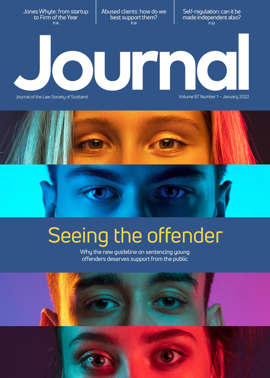Immigration: Is arrival a crime?
Immigration and immigration law has become a hot topic in the media. In recent years there has been an astounding amount of press coverage surrounding people crossing the Channel to seek asylum in the UK. The dangers were brought home following the deaths of at least 27 individuals who tried to make the journey on 24 November 2021. With the rising number of people hoping to find safety in the UK via this route, the Government is promoting new legislation in an attempt to deter entry.
Nationality and Borders Bill
The Nationality and Borders Bill is further promoting the hostile environment in regard to immigration in the UK. The bill has passed the Commons and is now before the House of Lords. It is said to introduce the most significant overhaul of UK immigration law in over 20 years. It has been criticised by MPs, charities, and even the UN High Commissioner for Refugees, who found that it will undermine refugee protection rules and break international law.
One key issue within the bill is that it seeks to criminalise those who attempt to reach the UK by boat and those who “facilitate” such journeys. This includes those who assist people struggling in the water, in order to prevent loss of life. This sparked anger and in response the RNLI published a video online showing the work it regularly does saving people from the sea. As a result the bill has grasped public attention.
However, it must be noted that much in the bill is not new as such. It is already possible for someone who facilitates unlawful immigration to be charged with an offence. Under s 25 of the Immigration Act 1971, if a person knowingly facilitates a breach of immigration law, they have committed an offence. Attention has been brought to this legislation in recent weeks following Bani v The Crown [2021] EWCA Crim 1958.
Bani v The Crown
On 21 December, the Court of Appeal overturned the convictions of four asylum seekers who had been imprisoned for facilitating a breach of immigration law, having steered small boats across the Channel.
Lord Justice Edis found that the reason for the wrongful convictions was due to “heresy about the law”. The earlier case of R v Kakaei [2021] EWCA Crim 503 likewise considered s 25, and Lord Justice Edis also found the conviction to be unsafe.
It was said that it is not illegal to approach the UK by boat in order to claim asylum. Essentially, the Court of Appeal has found that simply guiding a boat to the UK is not entering or attempting to enter the UK unlawfully. The outcome in Bani is largely regarded as a victory for those who practise asylum law. The court will consider seven similar cases in January.
What will change?
Unfortunately, this precedent may not stand if and when the Nationality and Borders Bill is enacted. In its current form, clause 39 will amend s 24 of the 1971 Act and require anyone who seeks to enter the UK to have entry clearance before doing so, otherwise, they will be committing an offence. The issue here is that there is no visa option for asylum seekers. They cannot apply for entry clearance to seek asylum.
Further, clause 37 will amend s 25 of the 1971 Act. The explanatory note highlights that the bill will address those who “arrive in” the UK illegally. Therefore, the bill will broaden the criminal offence not only to entering but also to arriving in the UK illegally. This is important as most boats are intercepted before they arrive in the UK and are in fact assisted by Border Force or the RNLI to reach the safety of the UK. Again, the explanatory note states that currently those who are “intercepted” are not always deemed to have entered the UK illegally. The amendment will mean that all people who enter or arrive in the UK without entry clearance will be criminalised. It also means that anyone who assists the unlawful or illegal entry will be committing an offence.
Criminalising those who come to the UK to seek refuge, as well as those who rescue them at sea, is undoubtedly going to endanger more lives. Although the Government has stated that its aim is to prevent smugglers profiting from facilitating entry to the UK, what is more likely to happen is that already vulnerable people will be driven further into the hands of smugglers as they become more desperate to seek asylum in the UK. No safe alternative routes have been proposed, and if the bill passes in its current form, the UK will become an increasingly hostile place for refugees. Therefore, although Bani may be regarded as a step in the right direction, we may soon be taking two steps back.







